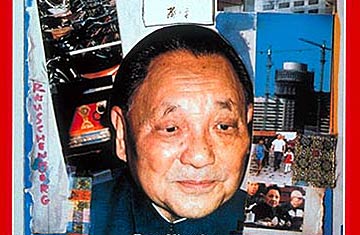
(9 of 17)
There has been a reaction. Chinese Communist purists blame foreign influences for such trends as a revival of pornography and prostitution. University students have staged several demonstrations in downtown Peking and other major cities. While ostensibly aimed at Japan's commercial presence, or, as was the case last week, at China's nuclear testing program, the demonstrations seemed to be directed more broadly at Deng's reforms because of the corruption and nepotism that have accompanied them.
Deng admitted recently that showcase projects like the Special Economic Zones have yet to prove their value. On the whole, though, he remains committed to welcoming foreign goods and capital. "There are those who say we should not open our windows, because open windows let in flies and other insects," he remarked in October. "They want the windows to stay closed, so we all expire from lack of air. But we say, 'Open the windows, breathe the fresh air and at the same time fight the flies and insects.'"
Politically and culturally, that fight has waxed and waned. China is still a one-party dictatorship and Deng has no intention of letting it become anything else. Rights taken for granted in the U.S., such as freedom of speech and assembly, are strictly controlled; some limited freedom of religion has been granted. Even so, a revised constitution adopted in 1982 marked a step toward making China a society governed by law rather than the whim of party officials.
In other ways, too, the dictatorship is less oppressive. Deng has permitted a popular press to spring up. Hundreds of new publications have appeared all over China; they cannot criticize policy, but they print lurid exposés of prostitution, pornography, corruption and black-marketeering by party officials (indeed, they sometimes seem to report little else). Culturally, Deng in 1983 permitted officials to start a crackdown on writers and artists, in the guise of a campaign against "spiritual pollution," probably as a gesture toward conservatives concerned that the pace of change was too rapid. But Deng speedily announced that the campaign had gone too far and called it off, leaving citizens and party officials alike in a quandary over just what is permitted and what is not.
One example is Jin Ping Mei (The Golden Lotus), a highly erotic literary classic from the Ming Dynasty (A.D. 1368-1644). Mao would let it be seen only by party officials of ministerial rank or higher. Wei Junyi, head of the People's Literature Press, prepared an expurgated edition for somewhat wider distribution, put it off during the campaign against spiritual pollution, and finally let it be printed in 1985 for distribution to writers and scholars, who snapped up 10,000 copies immediately at $6.65 per copy.
